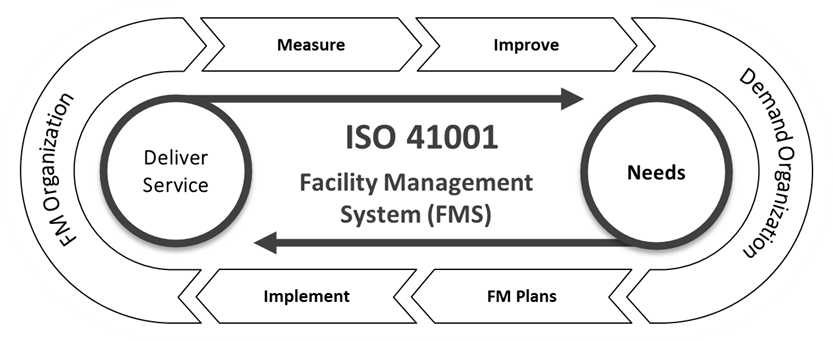In late 2018, the long-awaited International Standard Organization published ISO 41001:2018 — Facility Management system — Requirements with guidance for use. Some two and a half years later, we look at whether it has been a success story or whether it has failed to live up to its pre-launch expectation.

In Part 1, dated June 2019, I looked at early indicators of how the standard was received by the profession and industry, less than a year after it was launched. At the time, I experienced varying opinions from around the Globe. It was evident however that the ‘FM Mature’ countries were not adopting the standard as quickly as its pre-launch expectation suggested. There were numerous reasons for this, mainly due to a) a lack of awareness of the standard; or b) organizations were already certified to any one of several other associated ISO Management System Standards (MSS), notably ISO 9001, ISO 14001 and ISO 45001 and that until they felt a need or were being persuaded that ISO 41001 was a must, they would refrain for the time being. It should be noted that pursuing any ISO MSS is a resource intensive and time-consuming process that also involves business disruption and a great degree of business process re-engineering. Regardless of this fact, less ‘FM Mature’ frontier countries have been quicker to embrace this w standard and have viewed it as a way of demonstrating compliance and projecting themselves as ‘exemplar’ within the FM space.
1. Should we pursue ISO 41001?
With my ISO hat on, I would say absolutely yes, as it’s the right thing to do for an FM organization. Without my ISO hat on, I would say, absolutely yes, if you plan it properly and develop a SMART Facility Management System (FMS). What is the difference I hear you ask? The difference is significant. Pre-ISO 41001 when organizations adopted what is possibly ISO 41001’s closest cousin in ISO 9001 supplemented by ISO 14001 for Environmental Management and OHSAS 18001 (now ISO 45001) for Health & Safety, the system; was cumbersome, involving several MSS and was never a perfect fit for FM services. ISO 41001 has been developed specifically for the FM sector and is therefore our very own tailored FMS. Part of the problem we face today is the same problem that was being muted in 2019 — it’s a chicken and egg situation! The legacy ISO MSSs still exist and therefore the interest in adopting ISO 41001 has not manifest as I expected, partly due to the legacy but linked to this is the lack of widespread awareness and appreciation of the standard.
2. What are the certification stages?
There are several preliminary stages to consider in implementing any ISO MSS and ISO 41001 is no different. Ultimately it will be a commitment by the organization in more ways than one, it will be resource intensive and will require senior management commitment.
3. What are the benefits of certification to ISO 41001:2018 and will it deliver value?
There are indeed many benefits to any organization in adopting and becoming certified to an ISO MSS. Research carried out by both British Standards Institution (BSI) and the International Organization for Standardization (ISO) identify several business benefits for every organization.
Evbex is an estates, property and facilities management consultancy, advisory, technology and training company that is headquartered in the UK and has bases in Asia, the Middle East and North America.
We are an ISO 41001: 2018 Facility Management System, Certified Lead Implementer Professional and an Associate Consultant of the British Standards Institution. We deliver ISO 41001 training programs on behalf of BSI and support organizations all over the world to implement the standard.
In June-2021, Evbex will be launching its ISO 41001: 2018 Management System Platform as part of FM Navigate, an FM Technology solution that serves the demand organization (https://www.evbex.com/fm-navigate-facility-management-software/)
FM Navigate — Management System is a comprehensive cloud-based ISO management system, which enables you to select a management system of your choice. Once you have made your selection you can develop and build your MSS within FM Navigate using ISO’s high-level management structure. The platform allows you to allocate roles, responsibilities and authors to develop each section or element as appropriate. You can select your internal auditor and when ready, select your external auditor to proceed towards certification in your chosen MSS. The external auditor can access the platform through an ‘auditor’s portal’ and will therefore be able to carry out remote audits.

